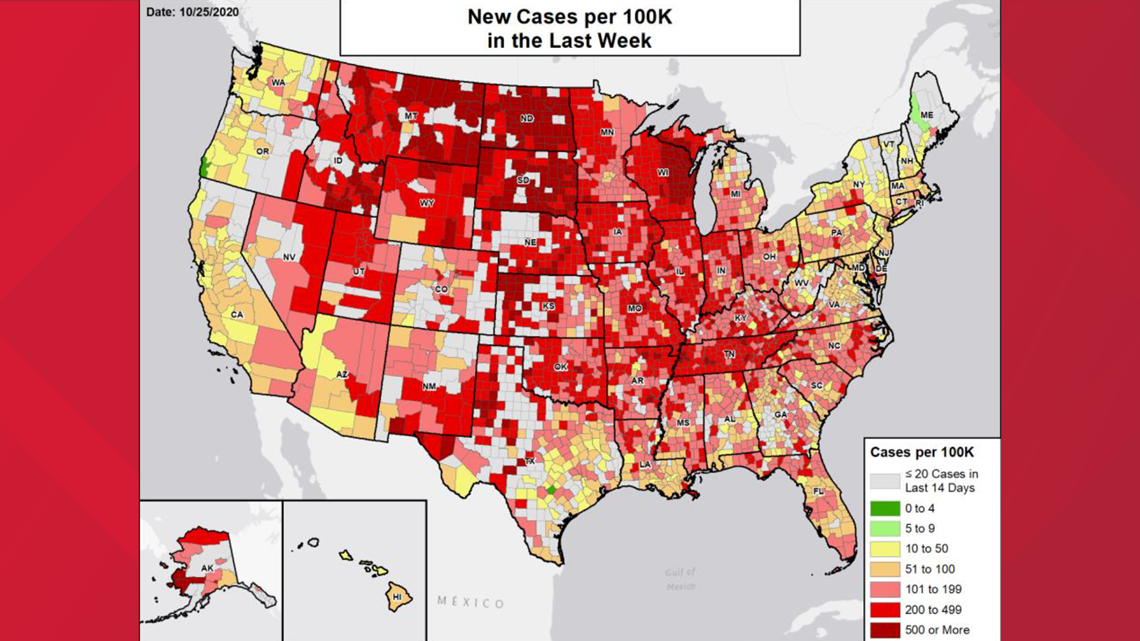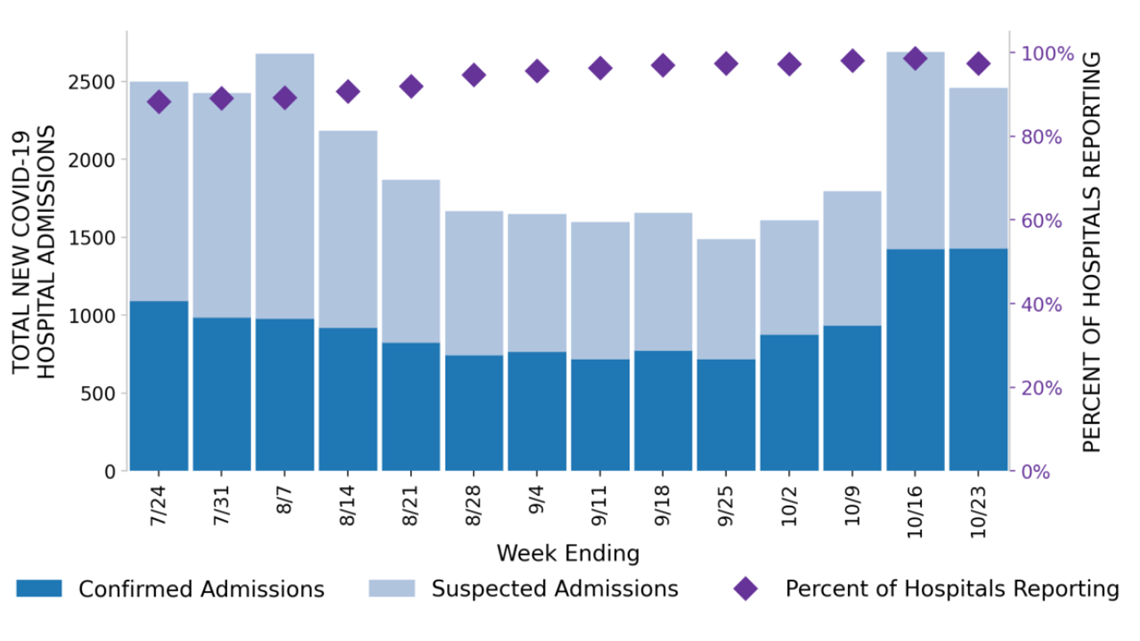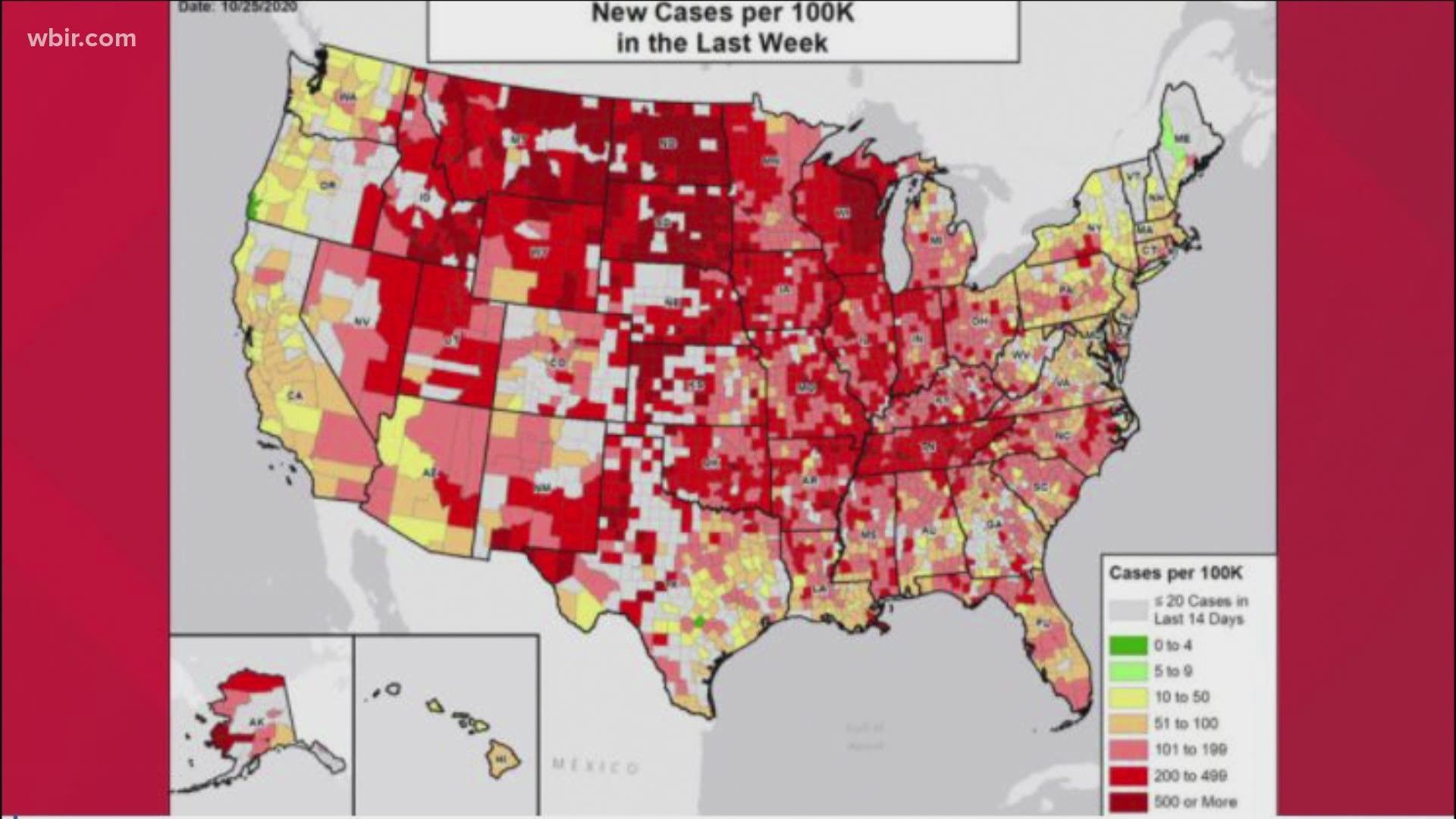KNOX COUNTY, Tenn. — The COVID-19 pandemic is worsening in virtually every aspect across Tennessee, according to the latest weekly report the White House Coronavirus Task Force provided to Governor Bill Lee.
The majority of Tennessee's 95 counties are now in the "red zone" as new cases, positivity rates, deaths, and hospitalizations climb.
Tennessee is now reporting the ninth-highest rate of new cases in the entire country, the twelfth-highest test positivity rate at 10.1%, and the tenth-highest death rate per 100,000.
98% of all counties in Tennessee have moderate or high levels of community transmission, with 74% seeing high levels.
During the week of October 12, 22% of nursing homes in the state had at least one new resident COVID-19 case, and 35% had at least one new case involving a staff member. 9% of nursing homes had at least one new resident death from COVID-19.
Tennessee's rate of new cases was 264 per 100,000 people -- nearly twice the current national average of 133 per 100,000. This rate increased by 44% compared to the previous week. For perspective, the task force considers anything over 100 cases per 100,000 to be in the "red zone."


The 7-day positivity rate rose by 1.5% from the previous week. COVID-19 testing per 100,0000 people also appears to be down based on the most complete data from mid-October.
COVID-19 deaths increased by 43% from the previous week to 205 new deaths, a rate of 3 per 100,000. For comparison, the previous week's report from October 18 showed Tennessee's new deaths at 144, a rate of 2.1 per 100,000.
An average of 205 patients with confirmed COVID infections and another 146 with suspected infections were admitted each day to hospitals in Tennessee.
"Treating these patients in the disease is is really interesting, because it tends to have a long course," said Dr. Todd Rice, director of the medical intensive care unit at Vanderbilt University Medical Center. "Almost all of the patients that come to us in the ICU, are in the hospital for more on the level of weeks than days."


Dr. Rice said hospitals are working to ensure they can take care of COVID-19 patients in addition to patients without the virus.
"If we're at capacity, how are we going to take care of the next patient or the next few patients?" Dr. Rice told 10News. "It's definitely something that has a lot of us in the hospitals worried and then kind of anxious."
The White House Task Force warned of resource problems if the increasing hospitalization trend continues.
"All indicators of community spread are increasing, including percent of nursing homes with positive staff members and residents, and community spread is increasing hospital admissions, leading to potential resource constraints," the report said.
The task force is strongly recommending the state to increase its mitigation efforts again to curb further community spread.
"All indicators of community spread are increasing, including percent of nursing homes with positive staff members and residents, and community spread is increasing hospital admissions, leading to potential resource constraints," the task force said. "Mitigation efforts must be increased to control community spread to include mask wearing, physical distancing, hand hygiene, and avoiding crowds in public and specifically, social gatherings in private."
On top of community spread, it is also worried about significant increases in spread that will be caused by colder weather habits as friends and families move indoors for social gatherings. For months, disease experts and public health officials have tried to sound the alarm on this problem, as it coincides with the yearly flu season that will place greater strain on the healthcare system.
The task force is recommending that the state work with communities to limit both large and small social gatherings and encourage non-family to wear masks if they visit, as many infections are linked to asymptomatic spread at home gatherings. It said people need to be aware seemingly uninfected family members and friends may actually be infected with COVID-19, but asymptomatic.
The task force is also encouraging specific mitigation messaging targeted to rural communities, university students and people over 65 years old through senior networks.

